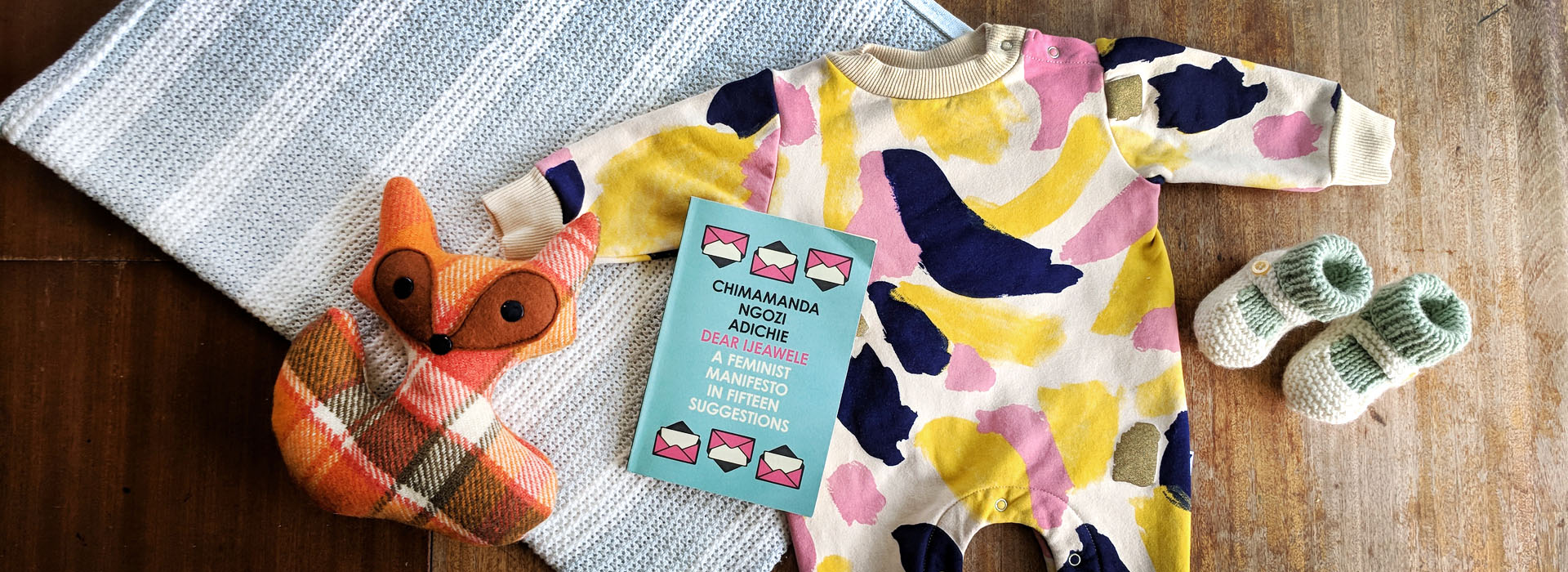Design, feminism, and parenthood
As some of you might know, I have been “working on” one of nature’s most repeated and arguably most valued projects on earth: growing new life. To be honest, it’s not a project I would have seen myself working on a couple of years ago.
Perhaps not even ever. But the reality is that creating new life and the journey/challenge attached started to intrigue me more and more. Nature agreed and has “put” me on the path I am right now.
Challenging stereotypes and assumptions
I always rejected the idea of stereotypes and love challenging set assumption in our society, especially when it comes to gender roles. In that light, I really like the idea of raising a strong independent bad-ass girl. Perhaps, even more so in a time where women are on the rise and we are proactively moving towards a more equal society (the last steps are always the hardest). But it turns out we are having a boy — yay! And it did make me think: do I now change tack? Clearly, the answer is no. If anything, in an equal world there shouldn’t be a distinction in values and information you want to transfer based on gender.
So, instead of reading up on all pregnancy and birth-related books, I decided to invest in a rather small and lovely book by Chimamanda Ngozi Adichie* called Dear Ijeawele, or A Feminist Manifesto in Fifteen Suggestions.
Even though this looming motherhood has inspired me (and my amazing partner, Simon) to buy her book, it is a great read for anyone, whether you have kids or not. The following suggestions are a great way to contribute to a more equal world. And as I write this, I can’t help but draw some parallels to our work environment and the design methods we embrace.
* Please look up Chimamanda Ngozi Adichie, she is without a doubt one of the most inspiring feminists around. A great advocate of what it means to be a feminist in our day and age.
Here some of the book’s highlights and learnings to be used in our daily work as designers (and other professions):
Be a full person
Bring your whole self to the table; you are not just a mum/dad/engineer/designer/program manager or any kind of label. You are a great mix of all sorts — your views and life experiences all add value. It is at these cross-sections we find interesting solutions to problems. Exposing your kid(s) and colleagues/clients to this can only lead to a richer environment. And as for work and parenthood, Marlene Sanders, the first female Journalist reporting in Vietnam, might have said it best: “Never apologise for working. You love what you do and loving what you do is a great gift to give to your child.” Even if you don’t truly love your job it could be the self-fulfilment or confidence that it brings that you love.
For the record I am not promoting workaholism here, I am all about a work-life balance 😉 but acknowledging the value of work can also help you appreciate it more.
Do it together
Collaboration is key in our work and beyond. It is about joining forces and teaming up and having fun in the process.
But, be careful when using the words “helping out”, especially in the context of parenthood. Your partner is not ‘helping’ you by caring for his child — or vice versa. He/she is doing what he/she should. This collaborative approach with shared responsibility is liberating; nobody should be pulling the full workload. We don’t demand superwomen/men.
No such thing as “because you are a girl”
The meaning behind this is easily imagined when it comes to raising your kid. However, this pre-set conditioning has a strong root in society well beyond our childhood. Clear evidence of that is the pink-tax, where similar products are marketed and sold for women at a much higher price. Stigmatizing designs (gender and beyond) are seriously outdated, so please don’t ever contribute to this outrageous behaviour in branding and product development. It is insulting.
Question language!
As insignificant and “harmless” as it may sound, gender-specific expressions can be very dangerous. Words are loaded with assumptions, can be misunderstood, and ingrain the wrong behaviour or, in our case, bad/off-point design. That’s why we love a user empathy research approach, asking follow-up questions to understand what lies beneath assumptions, expressions, and the words people use when describing their views. It can totally change the game and lead to the truth, even if it is confronting.
Reject likeability
Be polite, honest, and respectful, but don’t hold your opinion just because you are afraid people won’t like you for it. This means you will have to be brave at times because there is nothing worse than missing out on potential knowledge and insights. It is therefore incredibly important to nurture a (work) environment where people can speak freely and openly.
Be deliberate on how you engage on appearance
The book touches on a different aspect to create confidence and reject certain values around our physical appearance. One of the more practical aspects she mentioned made me think about its relevance in our workspace. The book highlights the importance of sports and physicality to create body awareness and confidence. And this physical representation and exploration couldn’t be truer in product development. The use of early mock-ups, visualisations, and 1-to-1 (3D) prints are some of the most powerful ways to inform and reassure ourselves. The need for physicality also reflects in our need for exercise and walks during work hours. Go have that coffee a couple of blocks away. Your body (and mind) will thank you for it.
Difference is normal
Difference is the reality of our world. We all walk a different path in life, and as long as those paths do not harm others, they are valid and should be respected. The same goes for any service or product you design. It will not be for everyone and that is great, it doesn’t reflect badly on the idea or the people that it doesn’t resonate with. If anything, it guides you and distinguishes you.
I consider myself incredibly lucky to be part of the Locus team, as we are performing pretty well as an equal opportunity company. And where we fail, we research, learn, and aim to improve, on a daily basis. This mentality will serve me well as I go into this adventure of motherhood. This is not a goodbye, this is a hello to a new layer to my identity, one which I am looking forward to bringing to the table on my return.
Want to read more on creativity, design, product development and innovation? Go to our Six Lenses Blog.


Comments